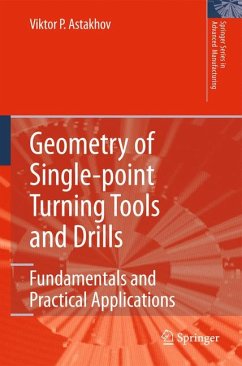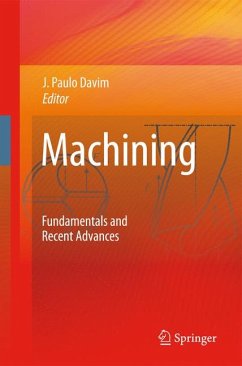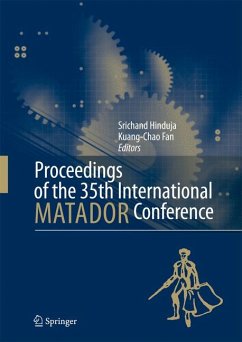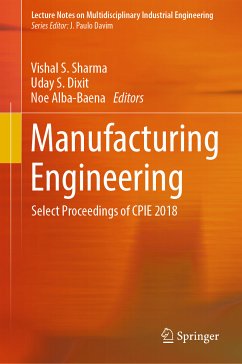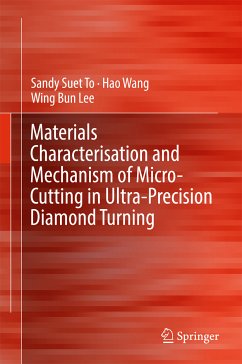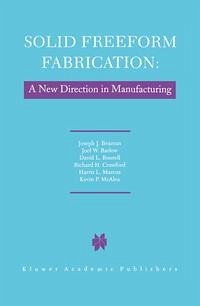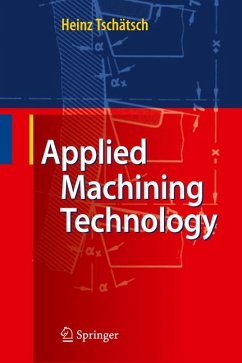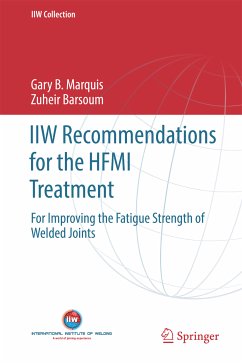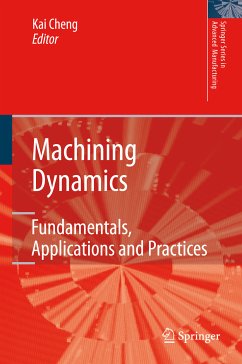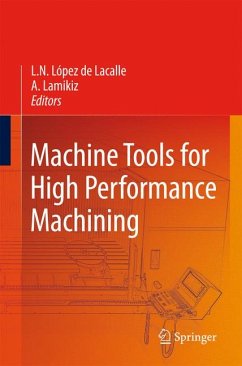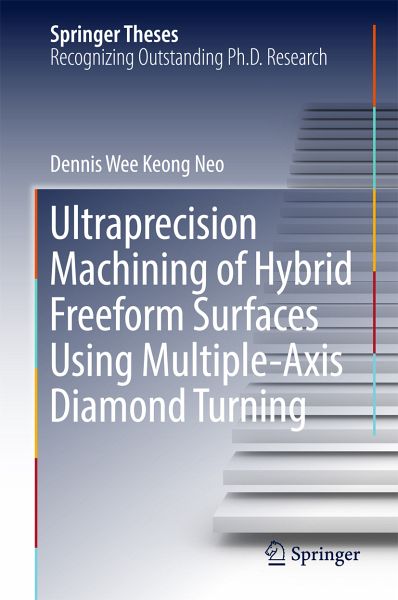
Ultraprecision Machining of Hybrid Freeform Surfaces Using Multiple-Axis Diamond Turning (eBook, PDF)
Versandkostenfrei!
Sofort per Download lieferbar
72,95 €
inkl. MwSt.
Weitere Ausgaben:

PAYBACK Punkte
36 °P sammeln!
This thesis focuses on producing hybrid freeform surfaces using an advanced diamond-turning process, understanding the generation of surface accuracies (form errors) and how the choice of cutting strategies affects these, as well as simplifying the complications of generating cutting paths for such freeform surfaces. The breakthroughs behind this thesis are the development of novel, multiple-axis, diamond turning techniques to overcome the limitations of conventional diamond turning processes, an analytical model to optimize the generation of ultraprecise freeform surfaces, and an add-on tool ...
This thesis focuses on producing hybrid freeform surfaces using an advanced diamond-turning process, understanding the generation of surface accuracies (form errors) and how the choice of cutting strategies affects these, as well as simplifying the complications of generating cutting paths for such freeform surfaces. The breakthroughs behind this thesis are the development of novel, multiple-axis, diamond turning techniques to overcome the limitations of conventional diamond turning processes, an analytical model to optimize the generation of ultraprecise freeform surfaces, and an add-on tool path processor for CAD/CAM software solutions. It appeals to researchers and scholars with a strong machining background who are interested in the field of manufacturing ultraprecise freeform surfaces or in the field of optimizing ultraprecision machining processes.
Dieser Download kann aus rechtlichen Gründen nur mit Rechnungsadresse in A, B, BG, CY, CZ, D, DK, EW, E, FIN, F, GR, HR, H, IRL, I, LT, L, LR, M, NL, PL, P, R, S, SLO, SK ausgeliefert werden.



